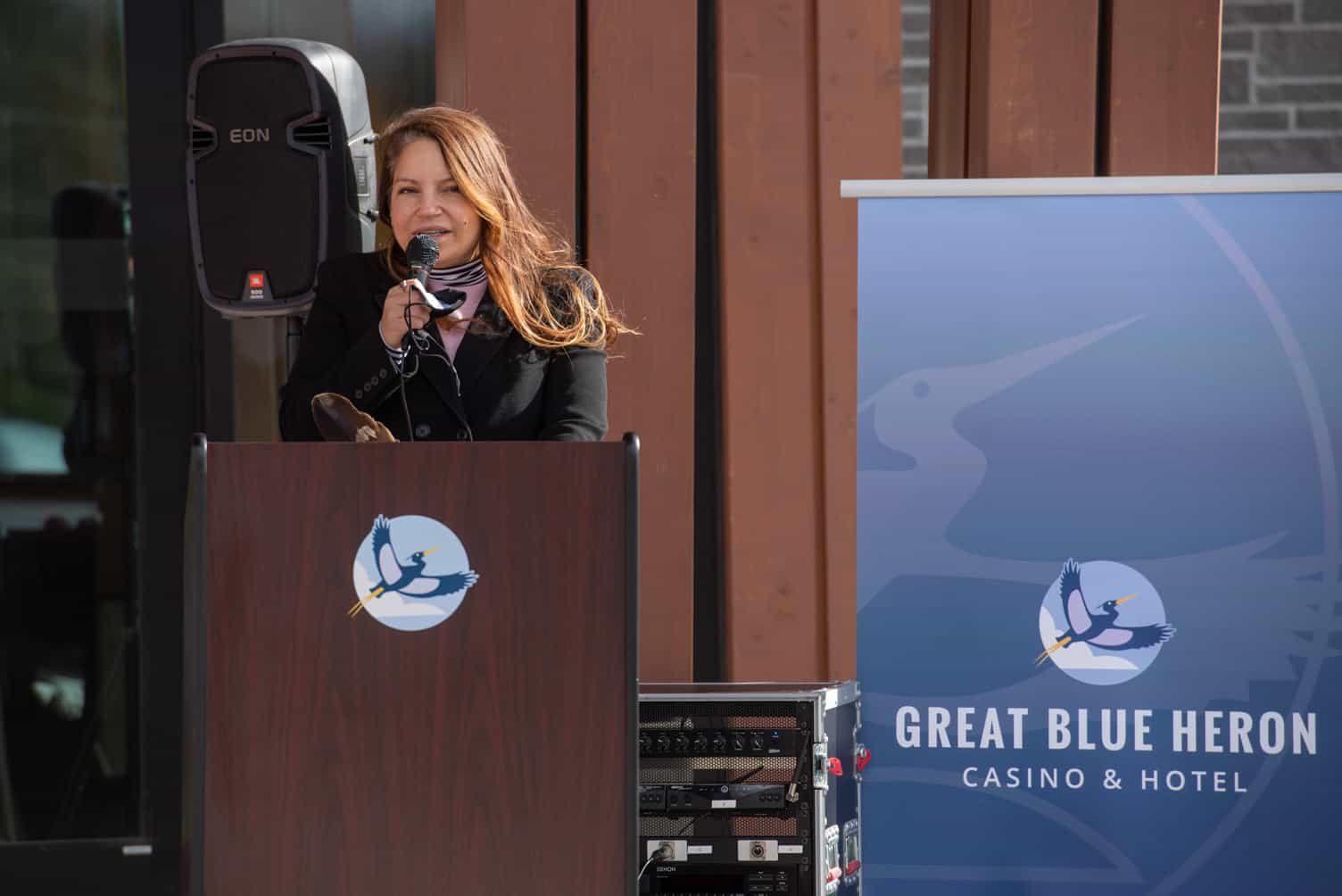Mississaugas of Scugog hopes Papal visit helps Church “atone” for residential schools
Published July 25, 2022 at 8:14 pm

The Mississaugas of Scugog Island hope the Pope Francis’ ongoing visit to Canada is a step toward reconciliation the Catholic Church while they “atone” for their part in the residential school system.
The Canadian government, working with both Catholic and Protestant churches, operated Indigenous Residential Schools across the country for more than 100 years between the early 1800s and 1997.
The schools, more concerned with exploiting the children’s labor than educating, were designed to isolate Indigenous youth from their families and cultures in effort to assimilate them to Settler culture.
Prime Minister Mackenzie Bowell’s government mandated attendance in in 1894. The schools were intentionally placed far from reserve to reduce parental visitation. Visits were hampered yet again by a pass system designed to confine Indigenous people to reserves.
Around 150,000 Indigenous youth were forced into the schools over the last century. Many of those who worked for the churches in the schools visited all manner of physical, sexual and mental abuses on the children.
Food was often barely edible. For example students one school in Brantford the Mush Hole, in reference to the slop the children were given to eat.
The actual mortality rate remains unknown has schools under-reported deaths and records were often destroyed. Later Truth and Reconciliation Committee (TRC) research identified at least 3,201 students died in the schools. TRC Chair Murray Sinclair estimated the true total is likely more than twice that number.
Social impacts of the Residential School System continue to echo throughout the country. A study by Lloyd Hawkeye Robertson for the University of Calgary found out of 127 respondents;
- half have criminal records,
- 65 per cent have been diagnosed with posttraumatic stress disorder
- 21 per cent have been diagnosed with major depression;
- 7 percent have been diagnosed with anxiety disorder; and
- 7 percent have been diagnosed with borderline personality disorder.
This echos run through the survivor’s children and descendants as well. Intergenerational trauma has been reported more frequently among the children of school survivors who are, for example, 10 per cent more likely to contemplate suicide than their peers.
The schools generally banned the use of Indigenous language and expressions of culture. Those speaking their first language were often harshly punished. This effectively killed off some native languages and instilled deep shame in expressions of culture. As a result, the system is routinely described as a cultural genocide.
The TRC estimated there are around 80,000 residential school survivor alive today.
Out of the 80 schools across Canada, the Catholic Church operated 44. The others were variously operated by the Anglican, United and Presbyterian Churches.
The Federal Government formally apologized under Prime Minister Stephen Harper in 2008, after years of refusal. Following Pope Benedict XVI’s statement of sorrow in 2017, the Justin Trudeau government has pushed for a papal apology.
Various Catholic orders and leaders have apologized for the Church’s integral role in the assimilation campaign. Pope Francis did itself finally apologized in April 2022 after hundreds of unmarked graves were discovered at former school grounds across Canada.
“I also feel shame … sorrow and shame for the role that a number of Catholics, particularly those with educational responsibilities, have had in all these things that wounded you, and the abuses you suffered and the lack of respect shown for your identity, your culture and even your spiritual values,” Pope Francis said at the time.
On July 25, in a lengthy speech to assembled survivors in Maskwacis, Alberta Pope Francis said, “I am here because the first step of my penitential pilgrimage among you is that of again asking forgiveness, of telling you once more that I am deeply sorry. Sorry for the ways in which, regrettably, many Christians supported the colonizing mentality of the powers that oppressed the Indigenous Peoples.”
“I am sorry. I ask forgiveness, in particular, for the ways in which many members of the church and of religious communities co-operated, not least through their indifference, in projects of cultural destruction and forced assimilation promoted by the governments of that time, which culminated in the system of residential schools.”
The Mississaugas of Scugog Island, north of Oshawa, welcomed Francis to Canada in a statement issued that same day. Chief Kelly LaRocca, while calling for the apology, said the visit, “must be an opportunity for the Pope to listen to survivors, leaders and our Elders.
“In order for the Church to move forward on the journey to Reconciliation, it must atone and recognize the severe impacts of its role in Church-run residential schools,” LaRocca’s statement reads.
They are also calling for the release of all church records associated with the schools and for clergy and congregations to be educated about the church’s role in accordance with TRC calls to action 59, 60 and 61.
insauga's Editorial Standards and Policies advertising






